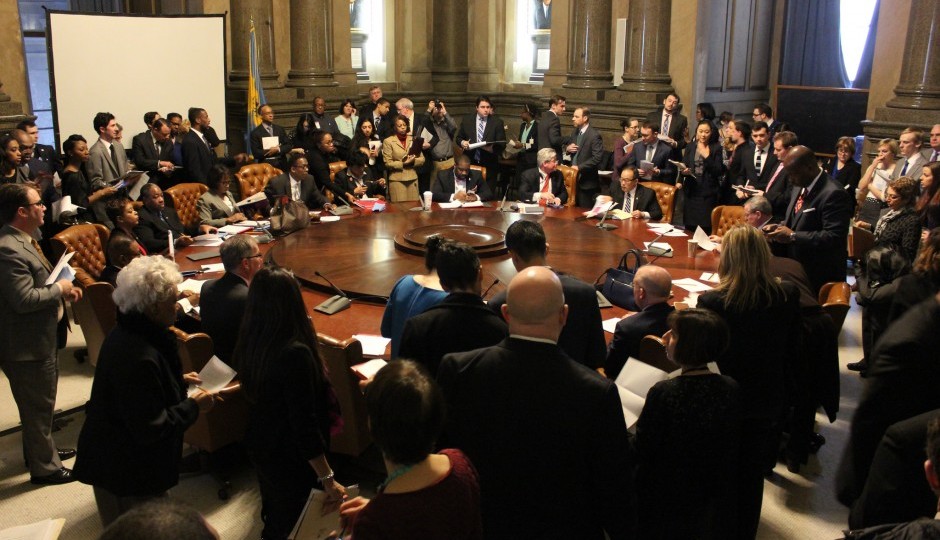Jim Kenney Will Upend the City Council Race, Too
The Philadelphia mayor’s race has changed overnight because Councilman Jim Kenney is soon jumping into it. So, too, has the Democratic City Council at-large race.
Philadelphians will now elect at least one new at-large Council member this year because Kenney must step down from his seat to run for mayor. With five Democratic at-large incumbents in the race previously, that was anything but guaranteed. (In this Democratic-dominated town, five of the city’s seven at-large seats are inevitably won by Democrats every four years.) Assuming that Council President Darrell Clarke doesn’t call for a special election to replace Kenney, here’s how his departure from the at-large race changes the game:
- The race is likely to get more crowded. With Kenney out, there are currently 12 candidates, including incumbents, running for Democratic City Council at-large. An open seat is simply too attractive to politicians, upstarts and activists for the field to stay so small (by historical standards) for long. We wouldn’t be surprised if Parents United for Public Education co-founder Helen Gym, who told us earlier this month she was thinking about getting into the race, now finally makes the plunge. Same goes for Derek Green, a top aide to Councilwoman Marian Tasco, who is rumored to be thinking about running. We may also see some candidates get into the race who we haven’t heard of yet.
- Kenney’s resignation is probably good news for the incumbent at-large members for a few reasons. If there is indeed a more crowded ballot this spring, that could potentially benefit sitting Council members who have name recognition. Ward leaders may also be less likely now to “cut” incumbent Council members from their sample ballots, which are those pieces of paper handed out to voters outside of polling places (and which, yes, have a real impact on the election). And the non-incumbents in race now have less of an incentive to attack Council members as part of their campaign, or at least less of an incentive to do so as harshly as they might have before. That likely helps Blondell Reynolds Brown, Ed Neilson and Bill Greenlee the most, as they were seen by many political insiders as the most vulnerable incumbents.
- Of course, Kenney’s resignation is also good news for the non-incumbent candidates as a whole, but it’s unclear if it benefits any of them in particular. That’s partly because of the diverse mix of supporters that Kenney has built up over the years. He’s got love from progressives, business leaders, white rowhouse neighborhoods, some labor unions and the LGBTQ community. Who in the field could assume that mantle wholesale? Paul Steinke, the openly gay former general manager of the Reading Terminal Market, will likely get votes from the LGBTQ community and financial support from business leaders, developers and lawyers. But Tom Wyatt, a partner in the Center City law firm Dilworth Paxson, is also presumably plugged into the business world. And we hear Isaiah Thomas, an adjunct professor at Lincoln University, has impressed a new group currently known as “Philly Rising,” which is planning to make independent expenditures to support pro-business Council candidates. Meanwhile, Sherrie Cohen, an open lesbian who finished sixth in the 2011 Democratic at-large race, will be fighting for the LGBTQ vote alongside Steinke, as well as for the progressive vote. But potential candidate Helen Gym is also a progressive darling. And then what about Frank Rizzo, Jr., who has got that rowhouse appeal? We could go on. The point is, there’s no clear winner here. Yet. Which should make for an interesting race.
